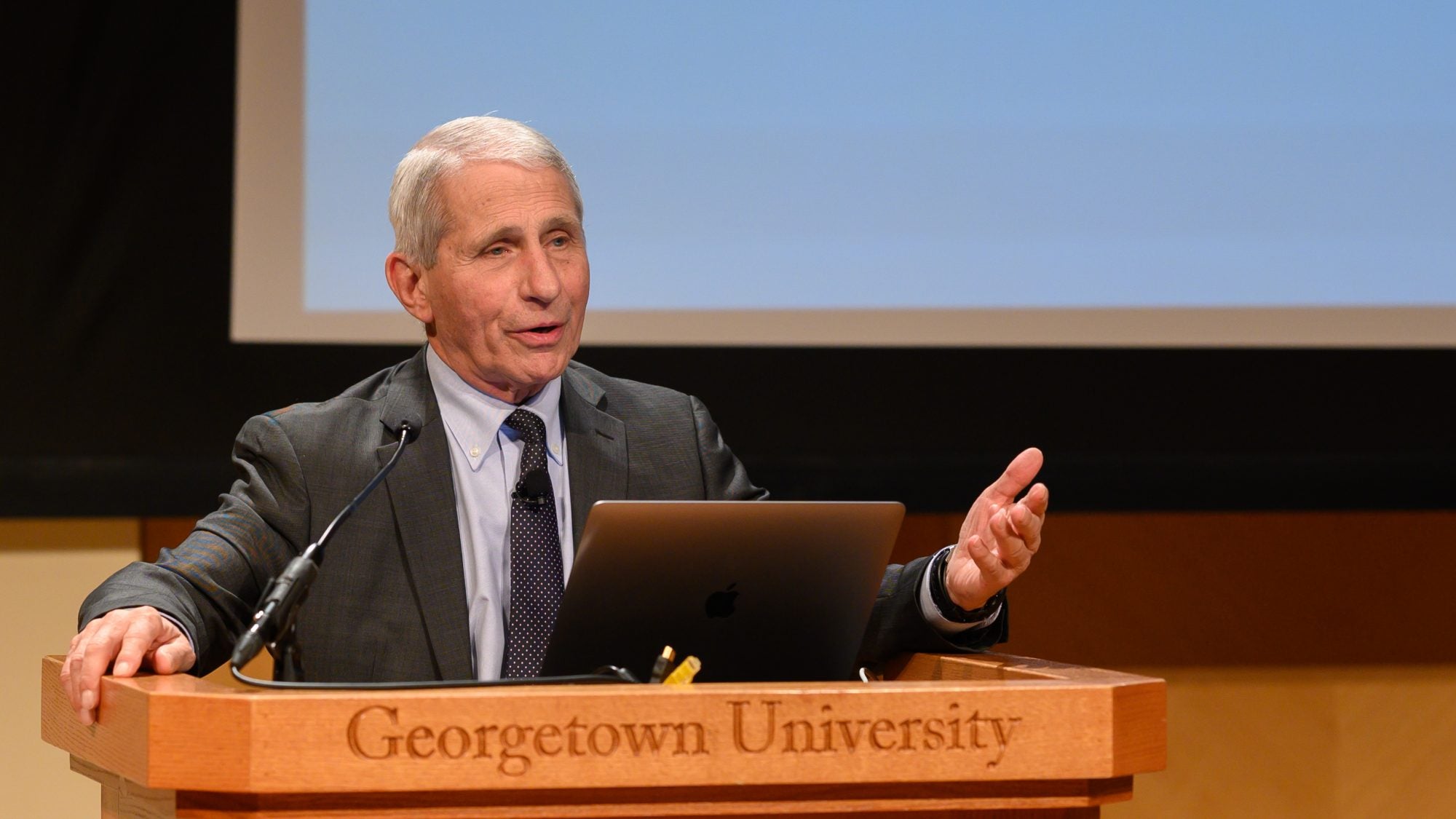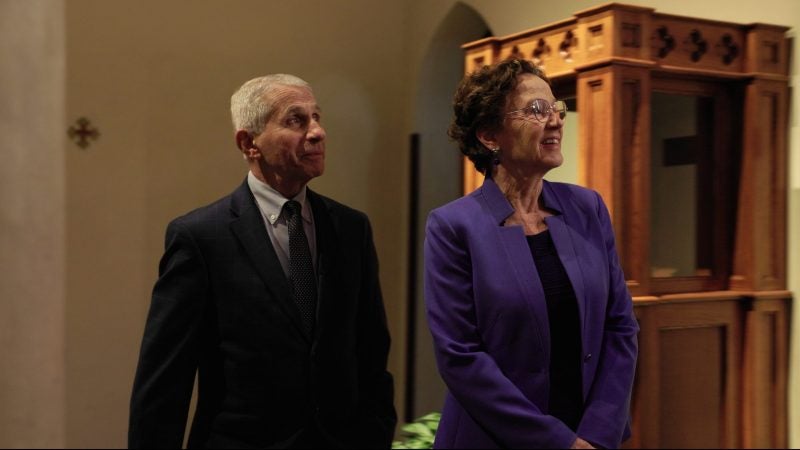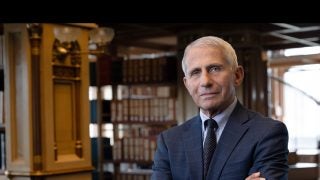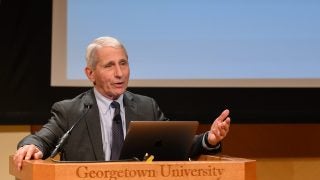Last December, Dr. Anthony Fauci stepped down from his 54-year career at the National Institutes of Health (NIH). After working 18-hour workdays during the COVID-19 pandemic, he spent the next few months deciding what he wanted to do next.
He knew he wanted to do something different. He knew he wanted to work in medicine and public policy. And he knew he wanted to inspire and mentor the next generation of scientific leaders.
“I ask myself, now, at this stage in my life, what do I have to offer to society?” he said. “I could do more experiments in the lab and have my lab going, but given what I’ve been through, I think what I have to offer is experience and inspiration to the younger generation of students.”
After looking at different options, Fauci realized the decision was “a no-brainer.”
Six months later, he’s about to start a new role: Distinguished University Professor at Georgetown, the university’s highest professional honor that recognizes extraordinary achievement in scholarship, teaching and service.
For Fauci, a physician, leading immunologist and infectious disease researcher and advisor to seven U.S. presidents who directed the National Institute of Allergy and Infectious Diseases (NIAID) at NIH for 38 years, coming to Georgetown was a full circle moment.
He had grown up educated in Jesuit institutions, married his wife, Christine Grady (NHS’74, G’93), a Georgetown alumna and chair of NIH’s Department of Bioethics, in Dahlgren Chapel, had their three children at Georgetown University Hospital, and engaged with Hoyas over the years on campus and in virtual discussions.
Before he begins his new role on July 1, we sat down with him to learn why he chose Georgetown, what he hopes to accomplish here, and why he’s giving himself the same advice he gives to students on his first day. This interview has been edited and condensed for clarity.
Q: What was going through your mind in December 2022 when you decided to step down? How were you feeling at the time?
Fauci: I knew it was the right time to step down because I said to myself, I’m still quite energetic. I’m still very enthusiastic, and I’m passionate about doing something with the next several years … while I still had, as they say, a lot of gas in my tank and a lot of energy. I wanted to do something a little bit different outside the confines of the federal government. I was trying to decide what exactly that would be.
There were several things I wanted to do. First of all, I wanted to stay in Washington, DC. But I also wanted to be involved in what would be a community — a community of academics, a community of students — in a medical center that’s well-known and respected, and have the opportunity to do both medicine and public policy.
All of a sudden it became very clear what I wanted to do because Georgetown filled all of those criteria with the added attraction that it was physically where I have been and I’m very happy at. Then it has so many other aspects of it that you couldn’t make it up <laughs>. My wife graduated from undergraduate here. She got her Ph.D. in philosophy here. We were married in Dahlgren Chapel. Our three daughters were born at Georgetown Hospital, and I live 10 blocks away <laughs>. It was pretty easy to make that decision. Kind of a no-brainer.



